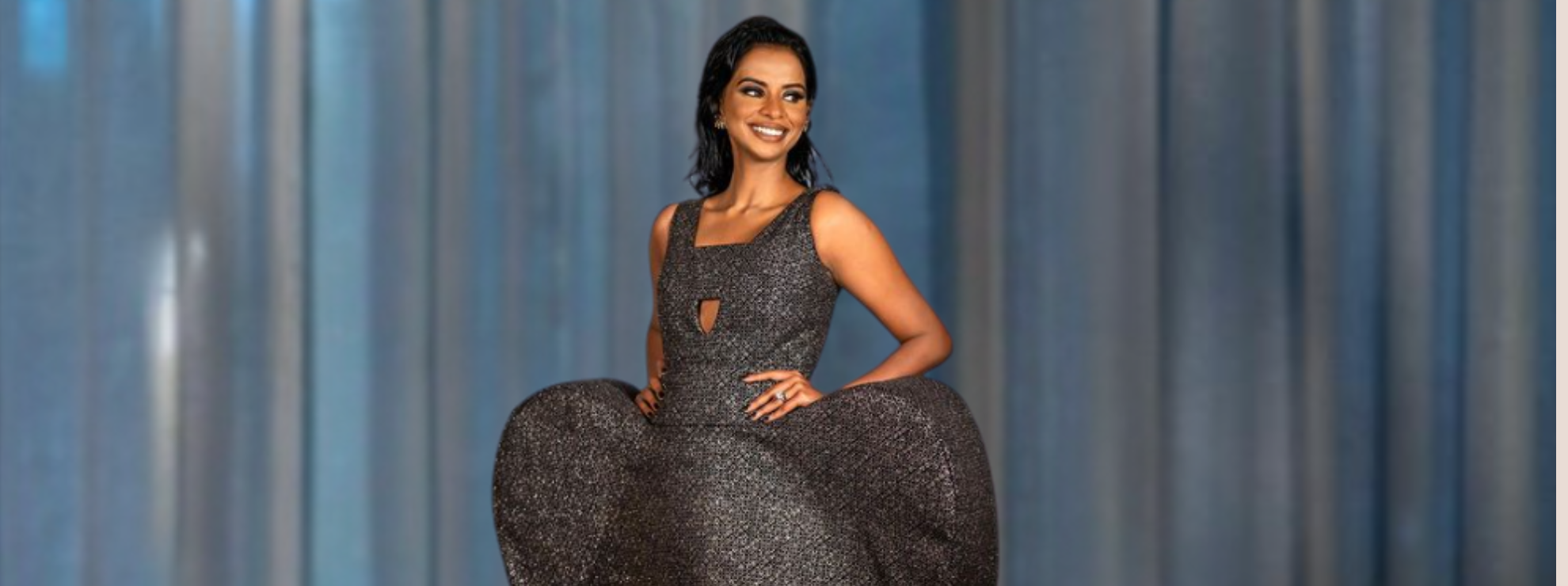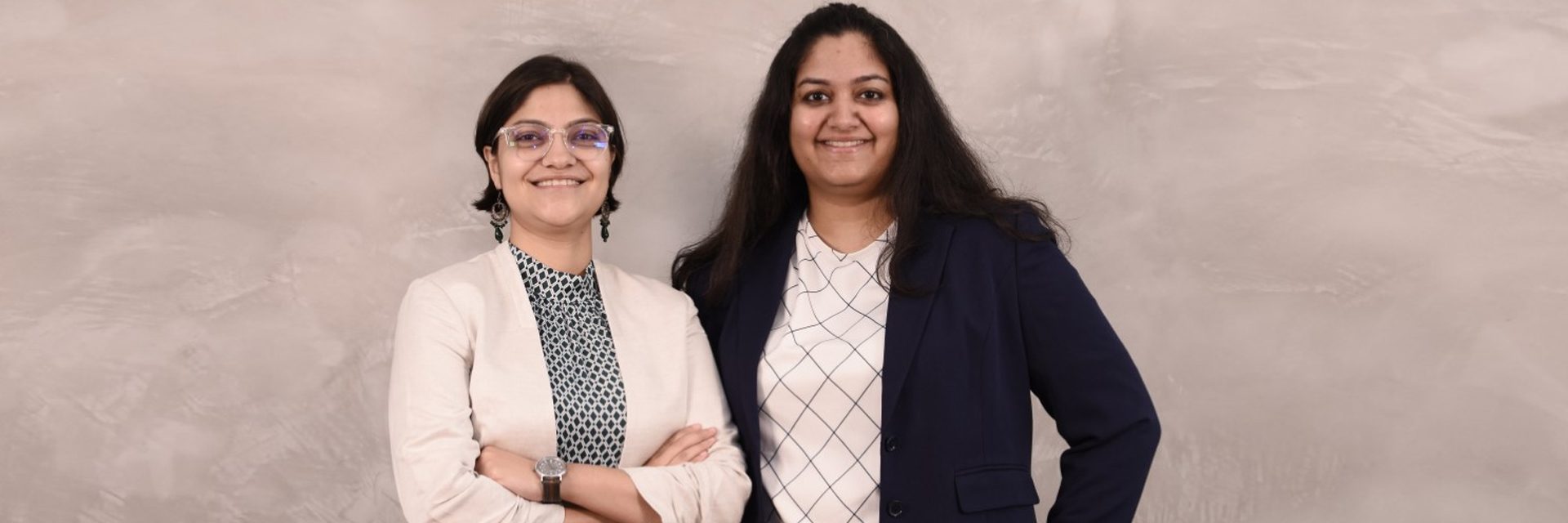(July 1, 2024) Behind all the success Priyanka Chigurupati has tasted, stands a set of rules which she sticks to, no matter what. They keep reminding her to work the hardest she can, be as ‘shameless’ as she can be, persist to the point of irritation, have as much doubt in her mind about her ability to do it, and keep doing it.
These very rules are what propelled her into achieving phenomenal growth for her company, Granules India Limited. “Achieving success once is one thing, but being able to do it consistently requires a great deal of courage. That is something I am still striving to achieve,” smiles Priyanka Chigurupati, Executive Director, Granules India Ltd, as she connects with Global Indian.
From a successful career in fashion through an e-commerce-based platform, which she eventually gave up for her father’s company Granules India Limited, Priyanka has proved she has all it takes to excel in any field.

Priyanka Chigurupati
‘Fashionologist’
Priyanka, who considers herself a “fashionologist” at heart, always had a keen eye for fashion trends. Back in 2009, when she was in New York, she started blogging about fashion. This was before blogging and e-commerce were as popular as they are today. “Seeing the positive reception to my blog, I wanted to make my sense of style accessible to others,” says Priyanka, who went on to launch an e-commerce platform to sell clothing with her label.
She believes there is an undeniable connection between fashion and psychology. “When you look your best, you feel your best,” says Priyanka, whose personal style is eclectic and non-conformist. She is someone who doesn’t adhere to trends and wears what empowers her, regardless of the brand or price tag. “Whether it’s a Rs 400 saree or a $4,000 dress, it’s about how it makes you feel and the unique style it allows you to express.”
Transition
The transition to the pharmaceutical industry wasn’t really her decision. Due to the nature of her company’s expansions, her father Krishna Prasad Chigurupati wanted her to join the family’s pharmaceutical business, and she did.
“I miss fashion. But with the experience I’ve gained in pharma, I’m certain I want to do something meaningful in the fashion industry in the near future,” informs Priyanka, who joined the company as a marketing manager in 2012.

At Granules India
Priyanka is very involved in the day-to-day affairs of Granules India Limited. “When you are in a position like mine, you get involved in everything, which presents a huge learning curve. The extent of learning depends on your willingness to learn,” says Priyanka, who is responsible for the growth of the US business of her company, which manufactures Active Pharmaceutical Ingredients (APIs), Pharmaceutical Formulation Intermediates (PFIs) and Finished Dosages (FDs).
One day, she might be heavily involved in making sales-related decisions, and the next day, she could be knee-deep in operations. “There is no typical day-to-day routine. Sometimes, I’m randomly called for a meeting on the opposite side of the world, and I have to travel overnight. It’s a whirlwind,” says Priyanka, who holds the position of Global Head of Sales and Marketing and Portfolio.
Moving to the US
Priyanka attended Gitanjali School in Hyderabad till the 12th grade. She then moved to the USA for higher education – starting with pursuing Case Western Reserve University in Cleveland, Ohio and then went on to receive an AAS degree from Parsons School of Design and finally an Executive MBA from Harvard Business School.
“As a child, I didn’t have a specific vision for my life. I simply wanted to explore everything that interested me, especially sports and films,” says Priyanka, who loved playing badminton in her early days, so much so that she would lose track of time. She also excelled at dance and theatre and even considered them as career options.
Experiences in US
Attending Case Western Reserve University at 17 was her first experience in the US. The culture shock was unexpected, and she struggled to fit in, and was not as easy as she had anticipated. She couldn’t pursue her passions for badminton and acting, though she did take some theatre classes. “However, I was highly motivated by my studies and achieved a great GPA. I mostly stayed within my comfort zone, socialising with friends from Hyderabad and watching films.”
Looking back, says Priyanka, she wished she had stepped out of that zone more often. She did this at Harvard, where she pursued an executive MBA after a decade and a half of work experience.
“The learnings were multi-faceted. I could apply my real-world knowledge to the case studies, and the diverse perspectives of my 135 classmates from around the world provided invaluable insights,” says Priyanka, who describes her experiences at Harvard as highly enriching.

Challenges
One of the biggest challenges Priyanka faced in her journey so far is not having a technical background. However, the more involved she got, rather than just looking at the high level, the more she reached a level of at least being able to question people.
Another ongoing challenge she faces is finding the balance between micromanaging and managing while delegating. “Taking a step back and trusting your team takes time, and I think it should,” she says adding that now, she is at a phase where she is being forced to do it.
In the process, she is learning too. “It certainly is a challenge, but I think that’s the trick. I didn’t like to address this last challenge too much in the past because I didn’t think it existed as much, but now I am feeling it a bit.”
Pharma industry
The Indian pharmaceutical industry has been growing steadily over the years, and despite the challenges posed by the COVID-19 pandemic, it has shown remarkable resilience, says Priyanka.
As the “pharmacy of the world,” India, she says, is well-positioned to meet the increasing global demand for affordable and quality medicines. “The pandemic has highlighted the importance of a robust healthcare system and the need for reliable drug supply chains,” she points out, which in turn has created new opportunities for Indian pharma companies to expand their presence in international markets and strengthen their research and development capabilities.
With a strong focus on innovation, quality, and affordability, the Indian pharma industry is poised for significant growth in the coming years, she says.
Pressure to perform
Priyanka feels the pressure to perform is indeed higher in family-run businesses. “While entry into the company may be easier, earning the respect co-workers is a challenging task.”
Working under the regular work pressure, coupled with the added burden of expectations, is an experience that only second, third, or fourth-generation children can truly comprehend, she says. “Once you join the family business, you must work twice as hard, and sometimes, you may feel like there is no way out,” she says adding it’s not a simple matter of “choosing” your life when you have a family legacy to uphold. “I am doing this for my father,” she smiles.
Priyanka says her father Krishna Prasad Chigurupati has dedicated 40 years of his life to building this company, and he still has the drive to keep going. “It is the least I can do for him, and I will continue to put in my best efforts for as long as I am able,” says Priyanka, who feels a deep sense of responsibility to carry forward the family legacy and ensure the continued success of the business that her father has worked so hard to establish.
At present, Priyanka’s primary focus is on Granules and her family. “However, I do have a few ideas in mind for the future, which I am currently working on materialising,” says Priyanka. The plans are still in the early stages, and she is dedicating time and effort to develop them further.

Outside work
On weekends, Priyanka tries to do nothing. “However, “nothing” is literally becoming nothing to the point of not having any social interactions, which is the first thing I’m trying to incorporate into my life,” smiles Priyanka, highlighting why social interactions are extremely crucial for a personality like hers. She continues to stoke her interest in fashion, and can spend hours researching the topic, in particular, discovering underground designers and bringing their creations to life in some cases. She also loves cinema. “With my work, regular exercise routine, watching a significant amount of on-screen content, travelling, and other commitments, I find little time for additional hobbies. However, I do have a strong passion for dancing, which is something I aim to pursue in the future,” she says.
As for films, they serve as her escape from the daily routine. “They transport me to extraordinary places and allow me to temporarily step into the shoes of someone else. It’s an exhilarating feeling that I cherish, and it speaks to the deep impact that storytelling and visual artistry can have on our psyche.”
Follow Priyanka Chigurupati on Instagram.



